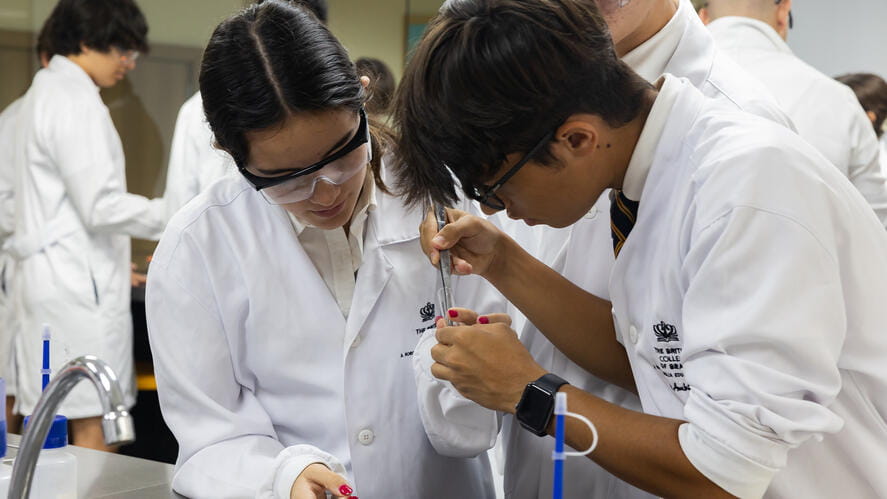

We are excited to inform you about a wonderful opportunity for our students from years 9 and 10 to participate in the upcoming Nord Anglia STEAM Festival in Monterrey, Mexico, taking place from 11th to 15th March 2025. STEAM stands for Science, Technology, Engineering, Arts, and Mathematics, and this event will provide our students with a fantastic platform to collaborate with their peers from Nord Anglia schools across the Americas.
During the festival, students will have the chance to develop hands-on projects, participate in a variety of workshops, and build skills in areas such as design, manufacturing, communication, teamwork, and creativity. The festival’s central focus will be on sustainable development and the pressing challenges related to climate change, giving students a chance to explore solutions to global issues.
To help you better understand how STEAM education can benefit your child and how you can support their interests, we’ve answered some key questions parents often have about STEAM:
1. How can I tell if my child is interested in STEAM?
If your child frequently asks questions like “how does this work?” or “why does this happen?” and enjoys activities like building, creating, or experimenting, these can be early signs of interest in STEAM subjects. A deeper passion for STEAM often shows when your child consistently explores these topics outside of school, perhaps through independent projects or activities that involve science, technology, or creative problem-solving.

2. How can I encourage my child’s interest in STEAM at home?
Encouraging your child’s interest does not require special equipment. Engaging in simple projects like building with LEGO, conducting small experiments, or using free coding apps can be effective ways to foster curiosity. There are also many excellent resources available, such as LEGO Robotics, The Boy Who Harnessed the Wind, and educational apps like Tynker and Khan Academy, all of which can help nurture your child’s STEAM skills.
3. What are the benefits of a STEAM-focused education for my child?
A STEAM-focused education equips children with valuable skills like creativity, problem-solving, and collaboration, which are essential for both academic success and future career opportunities. By learning through STEAM, children gain the confidence to approach challenges from different perspectives, helping them develop resilience and adaptability in an ever-changing world.
4. How does the school integrate STEAM into the curriculum?
Our school integrates STEAM through a variety of programs, such as MIT Challenges, coding projects, and interdisciplinary activities that connect science, technology, engineering, arts, and math in engaging ways. We ensure that subjects like math and science are not taught in isolation but are connected to real-world applications through hands-on projects that allow students to see how different fields intersect.

5. What should I look for in a good STEAM program?
When evaluating a STEAM program, look for opportunities for hands-on learning, access to modern technology, and a focus on creativity and collaboration. These are all important indicators of a strong STEAM offering. During school tours or meetings with educators, consider asking about project-based learning, the availability of resources for students, and opportunities for students to present their work or participate in competitions.
6. How does the STEAM Festival benefit my child?
The STEAM Festival provides a valuable opportunity for students to showcase their work, collaborate with peers, and engage with experts in the field, all of which enhance their understanding of STEAM subjects. Participating in the festival can boost your child’s confidence, improve teamwork skills, and allow them to experience the excitement of STEAM in action while receiving feedback on their projects.
7. Can STEAM education help with my child’s learning challenges?
Yes, STEAM can be highly beneficial for children with learning challenges, as it often incorporates alternative approaches like hands-on activities and visual learning, which may suit different learning styles. STEAM’s focus on inquiry-based learning and problem-solving can help build skills in areas where your child may need extra support, making learning more engaging and accessible.
8. What role do parents play in supporting STEAM education?
As a parent, you can support your child’s STEAM journey by encouraging curiosity, participating in school events, and providing access to STEAM-related resources at home. Simple activities like discussing what they’re learning can go a long way. Our school also offers resources such as parent workshops and access to educational tools to help you stay involved in your child’s STEAM education.
We are looking forward to seeing our students thrive at the Nord Anglia STEAM Festival and continue their journey of learning and discovery through the exciting world of STEAM!